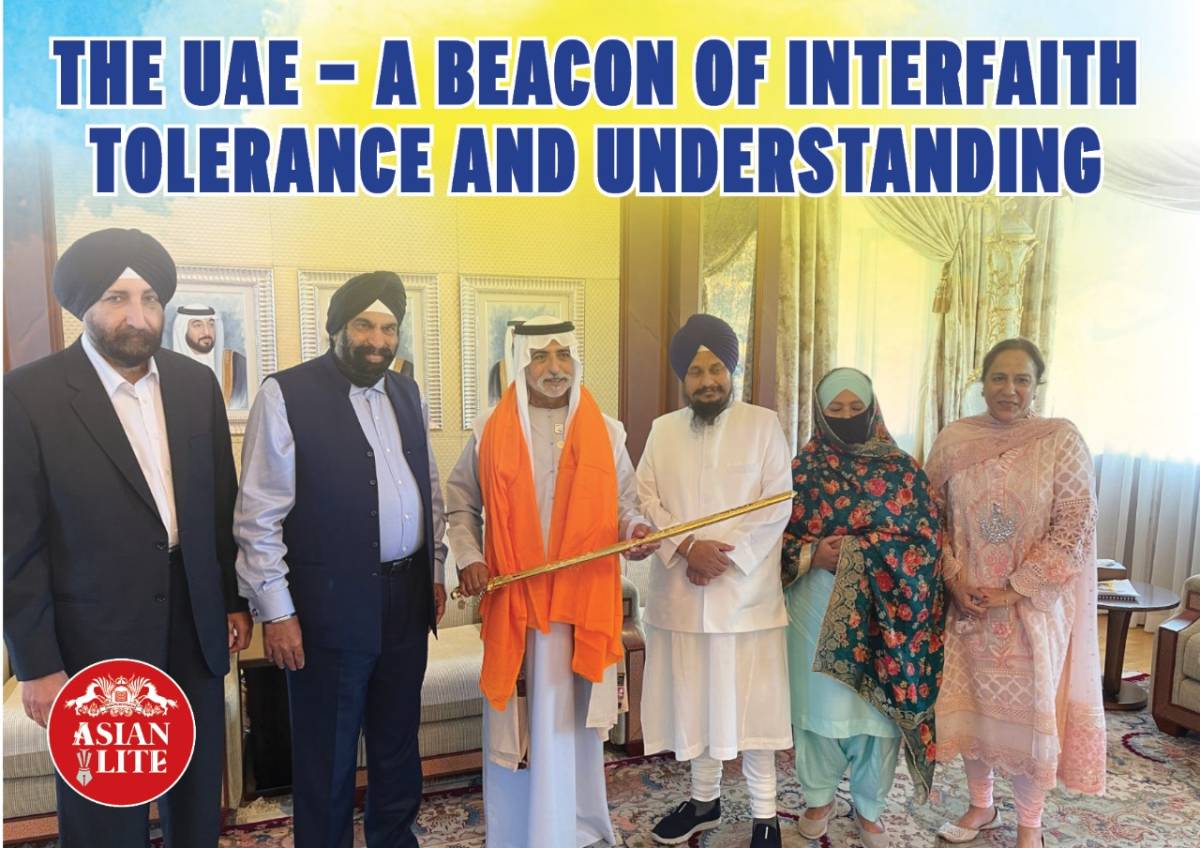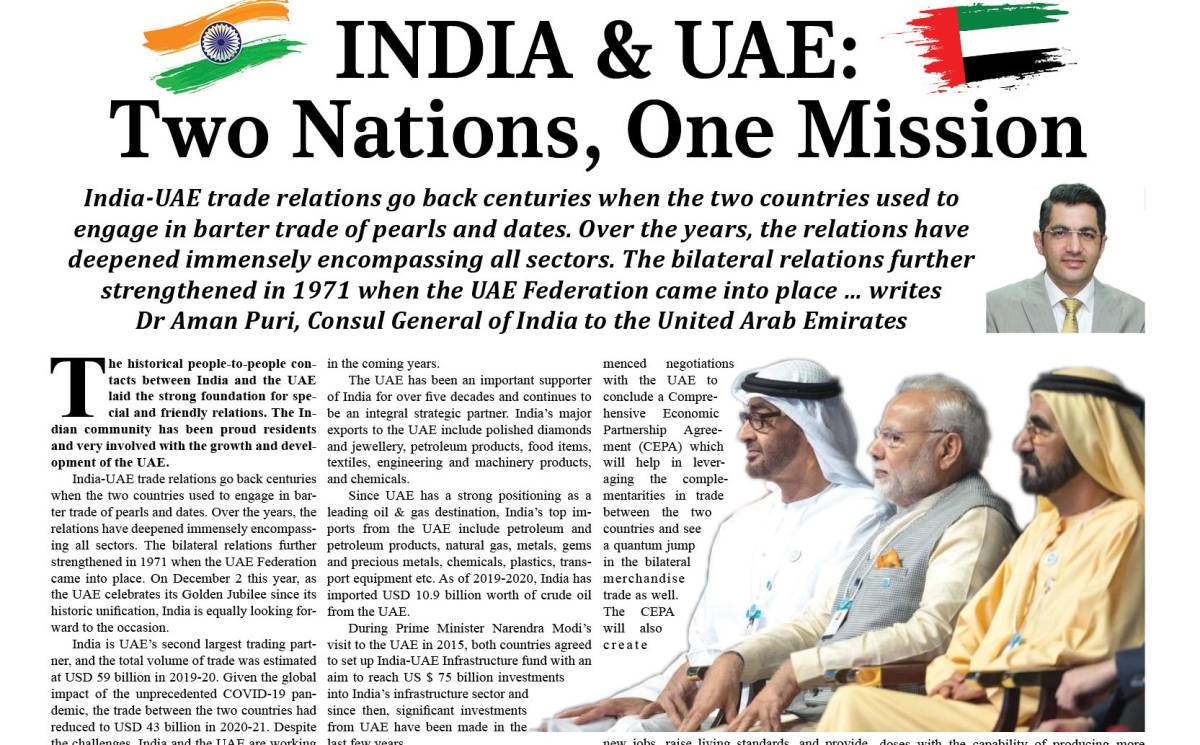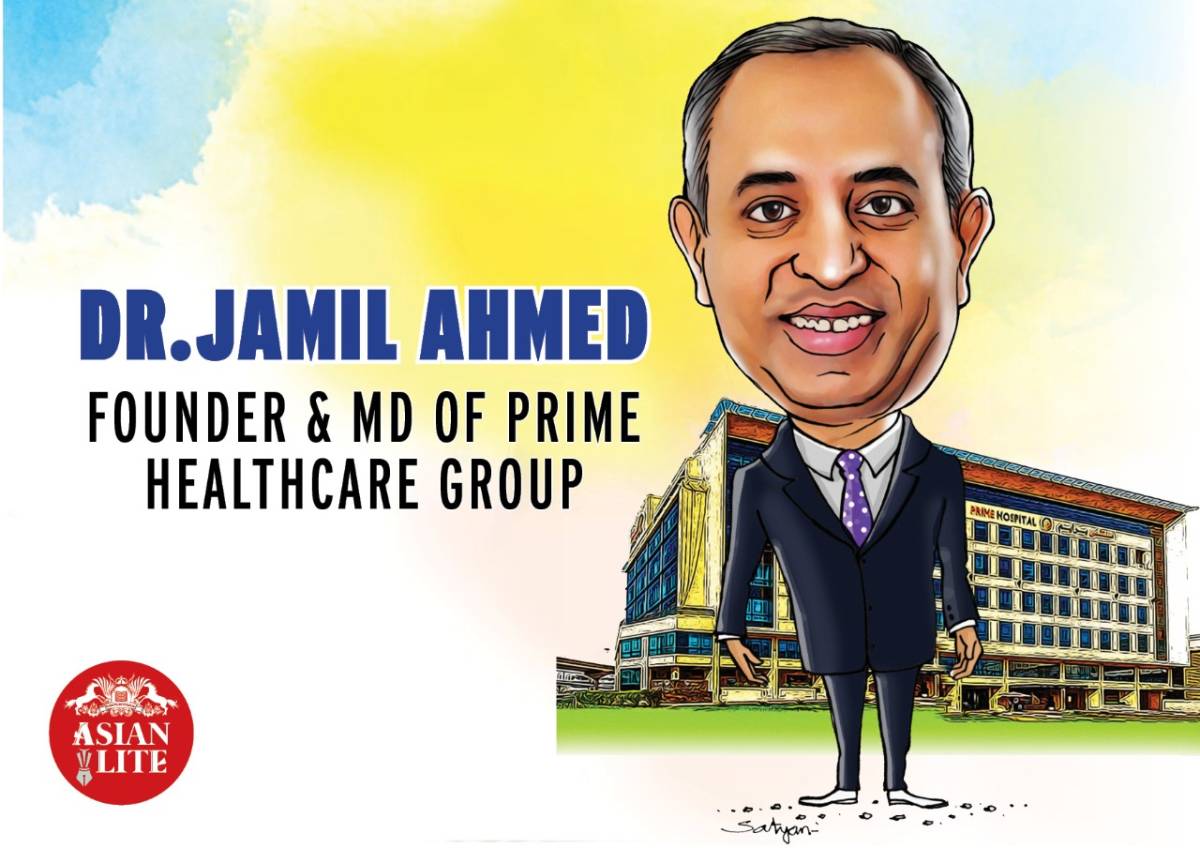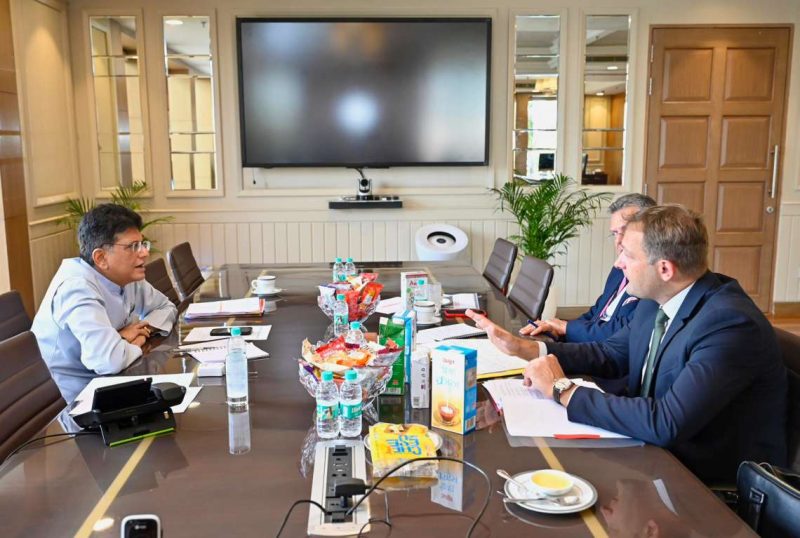The UAE is committed to be at the forefront of enabling harmonious co-existence among all religions and cultures in propelling progressive society through the value of tolerance
I came to Dubai, my adopted home in 1976. During my 45 years I have seen a lot of growth, development, acceptance, love and tolerance in all the communities living in the UAE.
The UAE is committed to be at the forefront of enabling harmonious co-existence among all religions and cultures in propelling progressive society through the value of tolerance. And this commitment was manifested to the Sikh community when His Highness Sheikh Mohammed Bin Rashid Al Maktoum, Vice-President and Prime Minister of the UAE, and Ruler of Dubai, granted 25,400 sq. ft. of land for free to build the world’s most modern and the region’s largest Gurudwara Sikh temple, the Guru Nanak Darbar Dubai.
The temple offers an array of religious, non-religious and interfaith services, and it attracts hundreds of thousands of visitors from around the world each year. The Sikh community holds an interfaith Iftar each year at Guru Nanak Darbar. People from all socio-economic, socio-ethnic and religious backgrounds, including foreign diplomats and UAE ministers, attend the annual event.
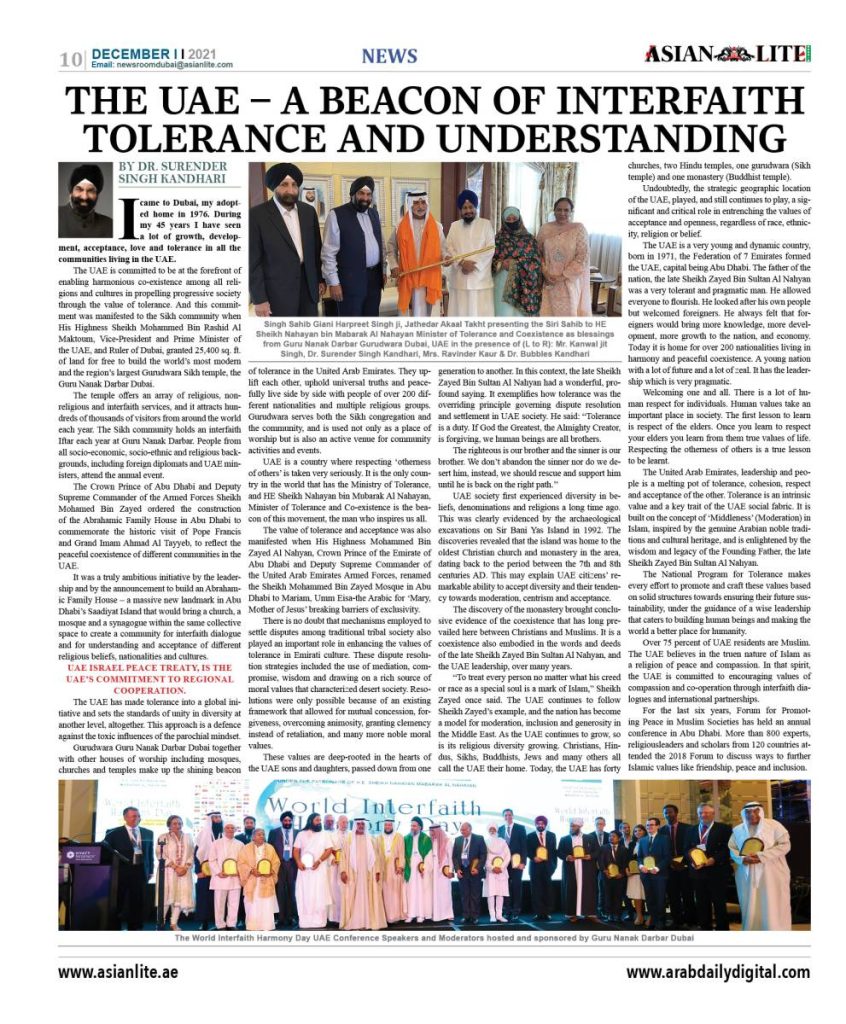
The Crown Prince of Abu Dhabi and Deputy Supreme Commander of the Armed Forces Sheikh Mohamed Bin Zayed ordered the construction of the Abrahamic Family House in Abu Dhabi to commemorate the historic visit of Pope Francis and Grand Imam Ahmad Al Tayyeb, to reflect the peaceful coexistence of different communities in the UAE.
It was a truly ambitious initiative by the leadership and by the announcement to build an Abrahamic Family House – a massive new landmark in Abu Dhabi’s Saadiyat Island that would bring a church, a mosque and a synagogue within the same collective space to create a community for interfaith dialogue and for understanding and acceptance of different religious beliefs, nationalities and cultures.
UAE ISRAEL peace treaty, is the UAE’s commitment to regional cooperation.
The UAE has made tolerance into a global initiative and sets the standards of unity in diversity at another level, altogether. This approach is a defence against the toxic influences of the parochial mindset.
Gurudwara Guru Nanak Darbar Dubai together with other houses of worship including mosques, churches and temples make up the shining beacon of tolerance in the United Arab Emirates. They uplift each other, uphold universal truths and peacefully live side by side with people of over 200 different nationalities and multiple religious groups. Gurudwara serves both the Sikh congregation and the community, and is used not only as a place of worship but is also an active venue for community activities and events.
UAE is a country where respecting ‘otherness of others’ is taken very seriously. It is the only country in the world that has the Ministry of Tolerance, and HE Sheikh Nahayan bin Mubarak Al Nahayan, Minister of Tolerance and Co-existence is the beacon of this movement, the man who inspires us all.
The value of tolerance and acceptance was also manifested when His Highness Mohammed Bin Zayed Al Nahyan, Crown Prince of the Emirate of Abu Dhabi and Deputy Supreme Commander of the United Arab Emirates Armed Forces, renamed the Sheikh Mohammed Bin Zayed Mosque in Abu Dhabi to Mariam, Umm Eisa-the Arabic for ‘Mary, Mother of Jesus’ breaking barriers of exclusivity.
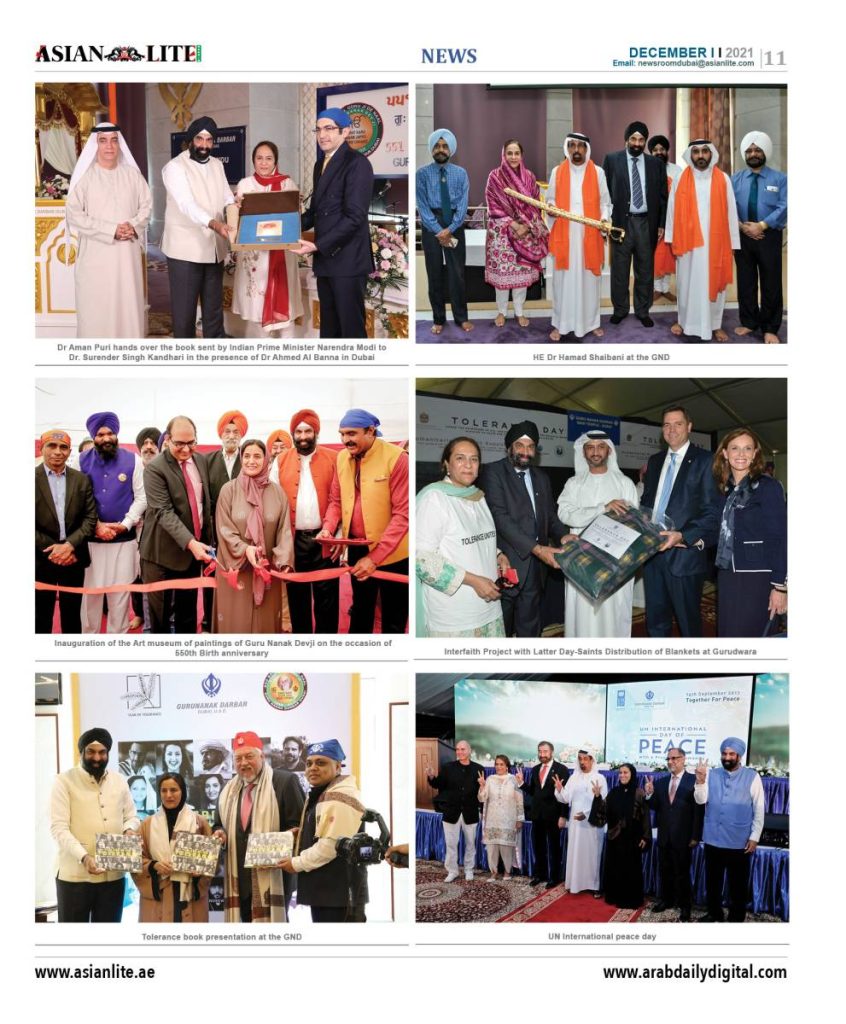
There is no doubt that mechanisms employed to settle disputes among traditional tribal society also played an important role in enhancing the values of tolerance in Emirati culture. These dispute resolution strategies included the use of mediation, compromise, wisdom and drawing on a rich source of moral values that characterized desert society. Resolutions were only possible because of an existing framework that allowed for mutual concession, forgiveness, overcoming animosity, granting clemency instead of retaliation, and many more noble moral values. These values are deep-rooted in the hearts of the UAE sons and daughters, passed down from one generation to another. In this context, the late Sheikh Zayed Bin Sultan Al Nahyan had a wonderful, profound saying. It exemplifies how tolerance was the overriding principle governing dispute resolution and settlement in UAE society. He said: “Tolerance is a duty. If God the Greatest, the Almighty Creator, is forgiving, we human beings are all brothers. The righteous is our brother and the sinner is our brother. We don’t abandon the sinner nor do we desert him, instead, we should rescue and support him until he is back on the right path.’’
UAE society first experienced diversity in beliefs, denominations and religions a long time ago. This was clearly evidenced by the archaeological excavations on Sir Bani Yas Island in 1992. The discoveries revealed that the island was home to the oldest Christian church and monastery in the area, dating back to the period between the 7th and 8th centuries AD. This may explain UAE citizens’ remarkable ability to accept diversity and their tendency towards moderation, centrism and acceptance. The discovery of the monastery brought conclusive evidence of the coexistence that has long prevailed here between Christians and Muslims. It is a coexistence also embodied in the words and deeds of the late Sheikh Zayed Bin Sultan Al Nahyan, and the UAE leadership, over many years.
“To treat every person no matter what his creed or race as a special soul is a mark of Islam,” Sheikh Zayed once said. The UAE continues to follow Sheikh Zayed’s example, and the nation has become a model for moderation, inclusion and generosity in the Middle East.
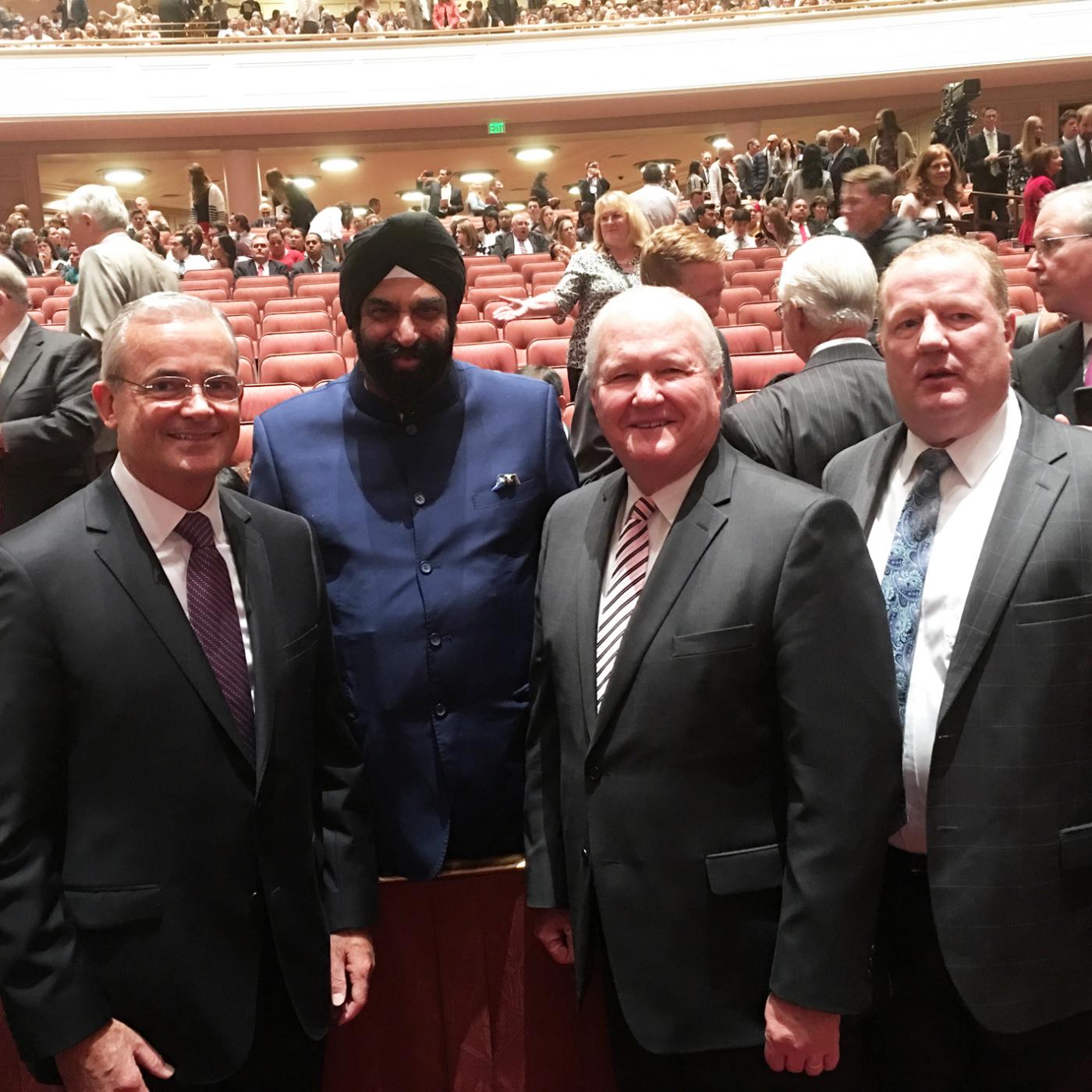
As the UAE continues to grow, so is its religious diversity growing. Christians, Hindus, Sikhs, Buddhists, Jews and many others all call the UAE their home. Today, the UAE has forty churches, two Hindu temples, one gurudwara (Sikh temple) and one monastery (Buddhist temple).
Undoubtedly, the strategic geographic location of the UAE, played, and still continues to play, a significant and critical role in entrenching the values of acceptance and openness, regardless of race, ethnicity, religion or belief.
The UAE is a very young and dynamic country, born in 1971, the Federation of 7 Emirates formed the UAE, capital being Abu Dhabi. The father of the nation, the late Sheikh Zayed Bin Sultan Al Nahyan was a very tolerant and pragmatic man. He allowed everyone to flourish. He looked after his own people but welcomed foreigners. He always felt that foreigners would bring more knowledge, more development, more growth to the nation, and economy. Today it is home for over 200 nationalities living in harmony and peaceful coexistence. A young nation with a lot of future and a lot of zeal. It has the leadership which is very pragmatic. Welcoming one and all. There is a lot of human respect for individuals. Human values take an important place in society. The first lesson to learn is respect of the elders. Once you learn to respect your elders you learn from them true values of life. Respecting the otherness of others is a true lesson to be learnt.
The United Arab Emirates, leadership and people is a melting pot of tolerance, cohesion, respect and acceptance of the other. Tolerance is an intrinsic value and a key trait of the UAE social fabric. It is built on the concept of ‘Middleness’ (Moderation) in Islam, inspired by the genuine Arabian noble traditions and cultural heritage, and is enlightened by the wisdom and legacy of the Founding Father, the late Sheikh Zayed Bin Sultan Al Nahyan. The National Program for Tolerance makes every effort to promote and craft these values based on solid structures towards ensuring their future sustainability, under the guidance of a wise leadership that caters to building human beings and making the world a better place for humanity.
Over 75 percent of UAE residents are Muslim. The UAE believes in the truen nature of Islam as a religion of peace and compassion. In that spirit, the UAE is committed to encouraging values of compassion and co-operation through interfaith dialogues and international partnerships.
For the last six years, Forum for Promoting Peace in Muslim Societies has held an annual conference in Abu Dhabi. More than 800 experts, religiousleaders and scholars from 120 countries attended the 2018 Forum to discuss ways to further Islamic values like friendship, peace and inclusion. Meanwhile, the Abu Dhabi-based Muslim Council of Elders seeks to encourage peace and inclusion in Muslim communities worldwide. In addition, the UAE’s commitment to helping those in need is rooted in the values of Islam. Sheikh Zayed Bin Sultan Al Nahyan, Founder and first President of the UAE, drew on the compassionate teachings of Islam to shape his vision for a generous, open-minded nation.
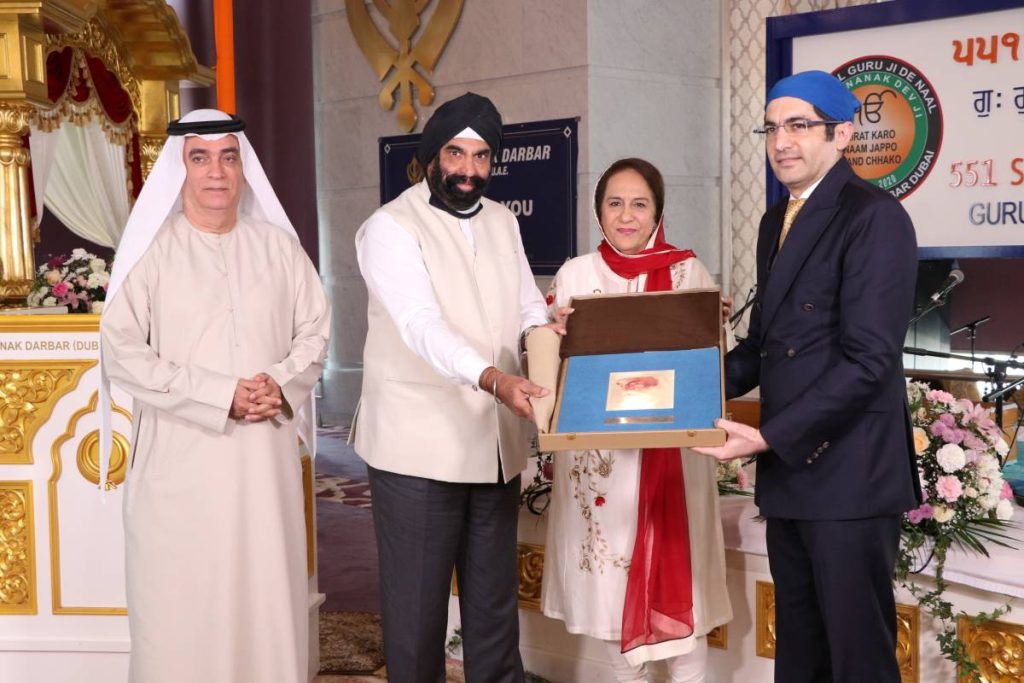
“To treat every person no matter what his creed or race as a special soul is a mark of Islam,” Sheikh Zayed once said. The UAE continues to follow Sheikh Zayed’s example, and the nation has become a model for moderation, inclusion and generosity in the Middle East.
Late HH Sheikh Rashid Bin Saeed Al Maktoum, the other founding father of UAE, also set the principles of tolerance, open-mindedness towards other cultures and a pride in heritage which is instilled in every Emirati and resident today. Under the leadership of HH Sheikh Khalifa bin Zayed Al Nahyan, President of the United Arab Emirates and the Supreme Commander of the United Arab Emirates Armed Forces; His Highness Sheikh Mohammed bin Zayed Al Nahyan, Crown Prince of the Emirate of Abu Dhabi and Deputy Supreme Commander of the United Arab Emirates Armed Forces and HH Sheikh Mohamed Bin Rashid Al Maktoum, Vice President and Prime Minister of the United Arab Emirates, and ruler of the Emirate of Dubai, have further built on this legacy of the founding fathers of UAE.
Tolerance is no catchphrase, but a quality we must cherish and practice. It must be woven into the fabric of our society to safeguard our future and maintain the progress we have made. There can be no bright future for the Middle East without an intellectual reconstruction that re-establishes the values of ideological openness, diversity, and acceptance of others’ viewpoints, whether intellectual, cultural, or religious.
With every lesson we learn comes a decision that will shape our future. But we also know that we can learn by looking to the future, not just then past or present. We need the power from within that can overcome the hatred and intolerance that has blighted life in many neighboring countries.
The world requires people to understand each other, respect each other, and then accept each other. No two people are same. Though we are all God’s children, we are different. People forget that we are all brothers and sisters and cousins. We all come from the same Almighty. There is only one super power, One God and we are all children of one God.
Almighty has different ways so he made different people. It is for us to change for us to be involved with all humans and live in peace and harmony. The more we interact the more we meet the more we engage into a dialogue the more we can appreciate each other. One has to respect the otherness of others.
ZAYED AL
We all must live together as one family, because we are all children on One God, and we should tolerate each other, respect each other, accept each other and be true to our forefathers who have taught us the value of religion, value of co-existence, value of co-operation.
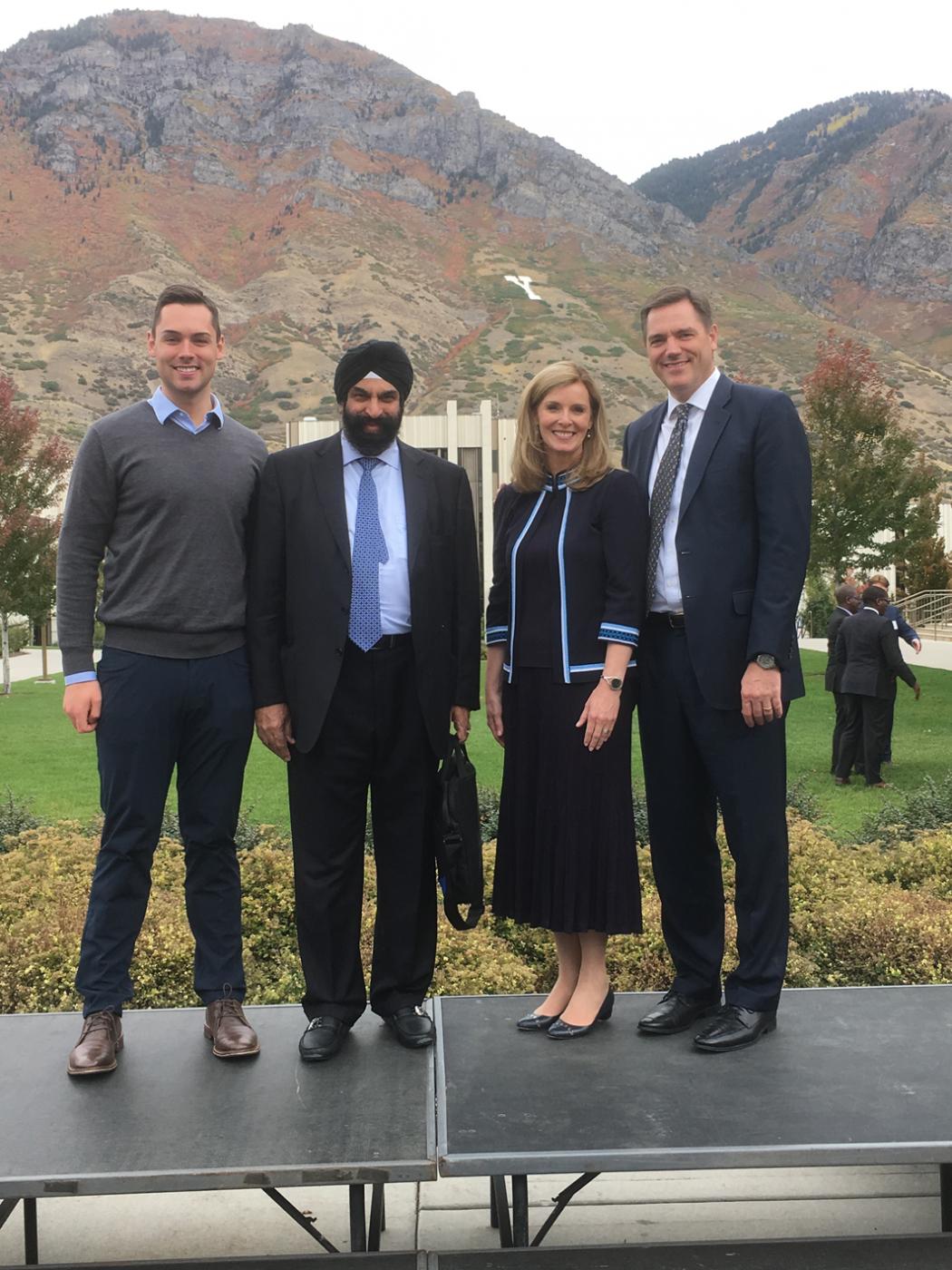
Surender-Singh-Kandhari-with-Sandra-Jeff-and-Mathew-Singer 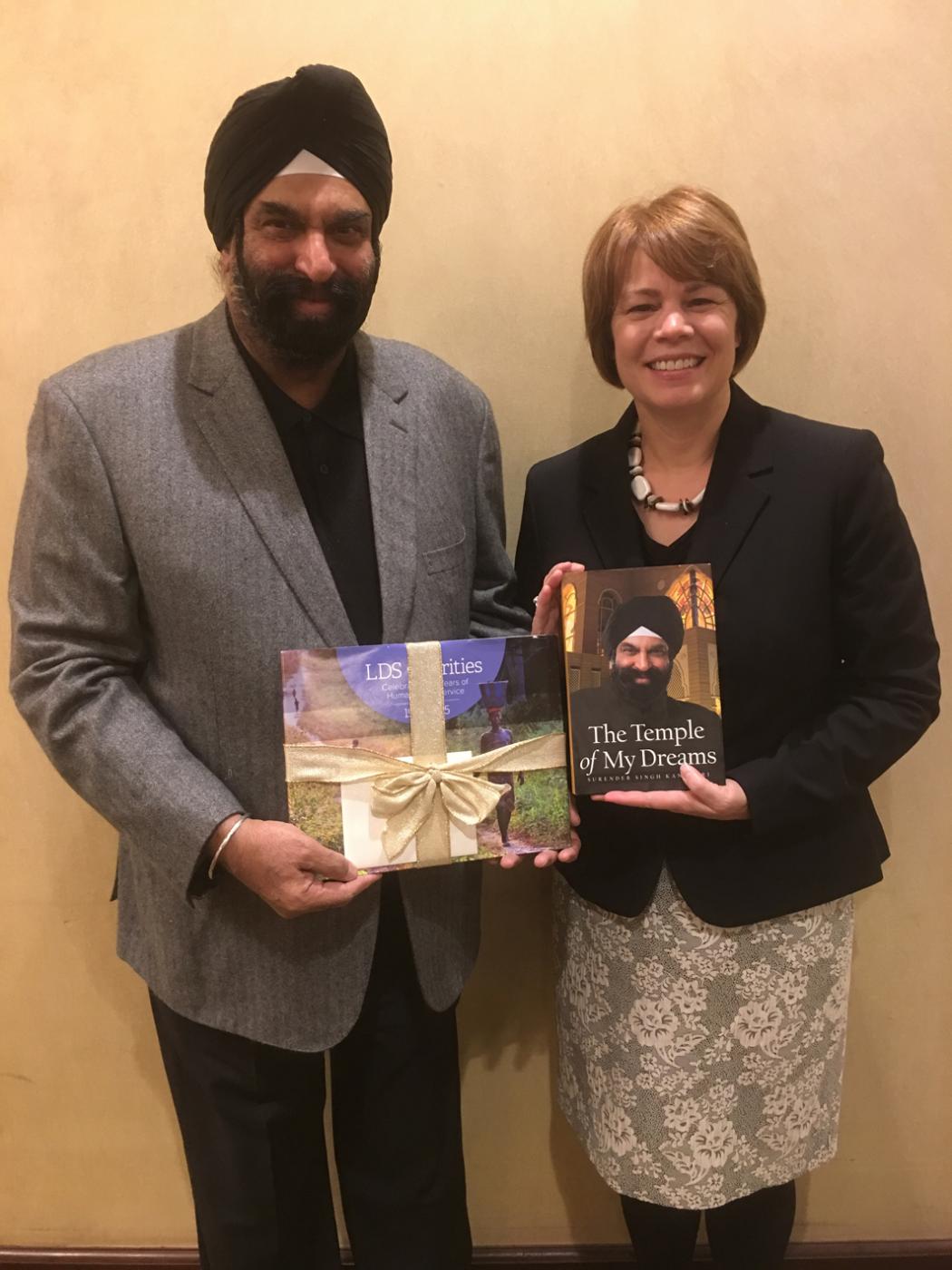
Surender-Singh-Kandhari-with-Sharon-Eubank-Director-LDS-Charities 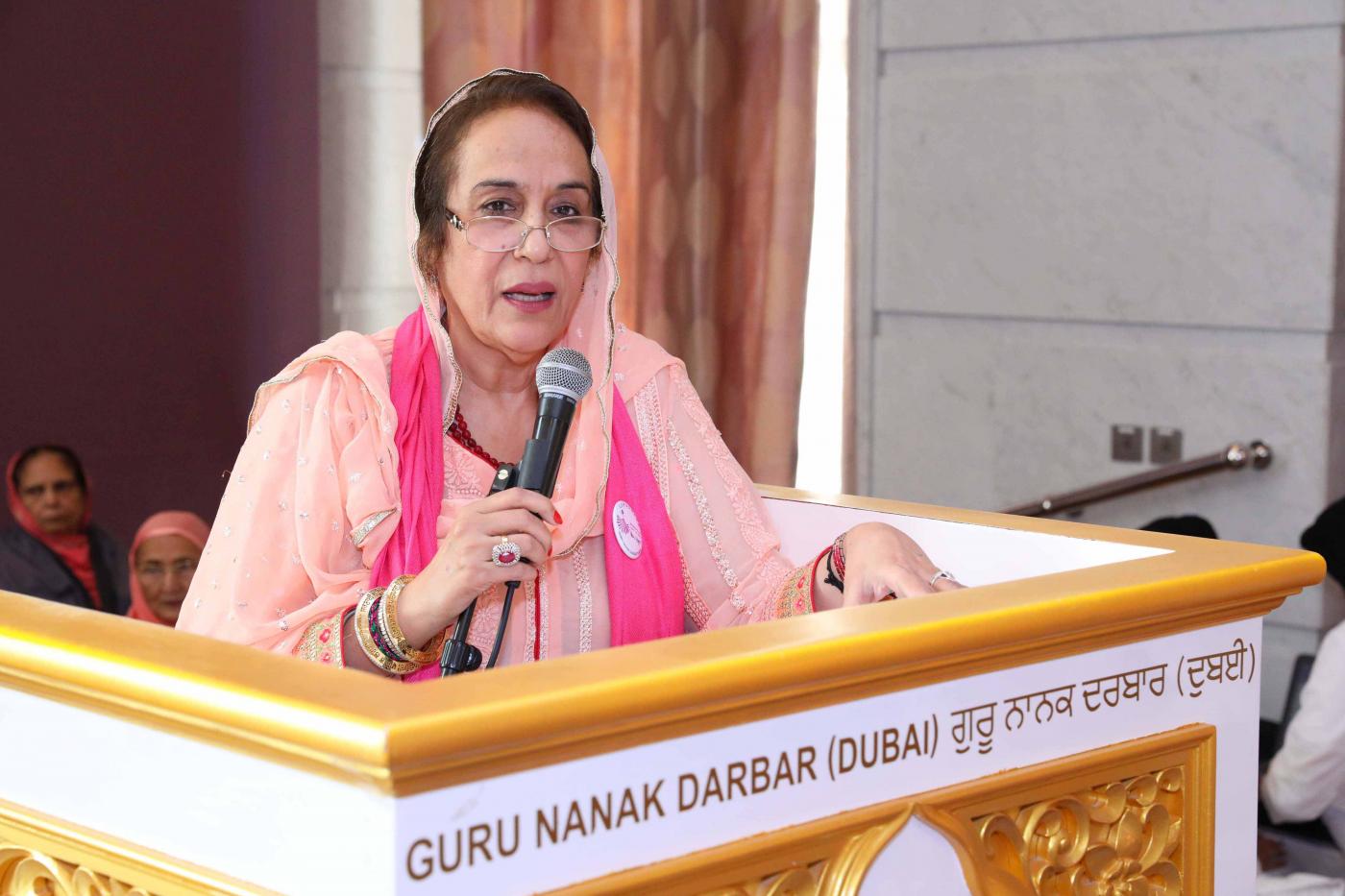
Mrs.-Bubbles-Kandhari-Vice-Chairperson-of-Gurudwara-Guru-Nanak-Darbar-D… 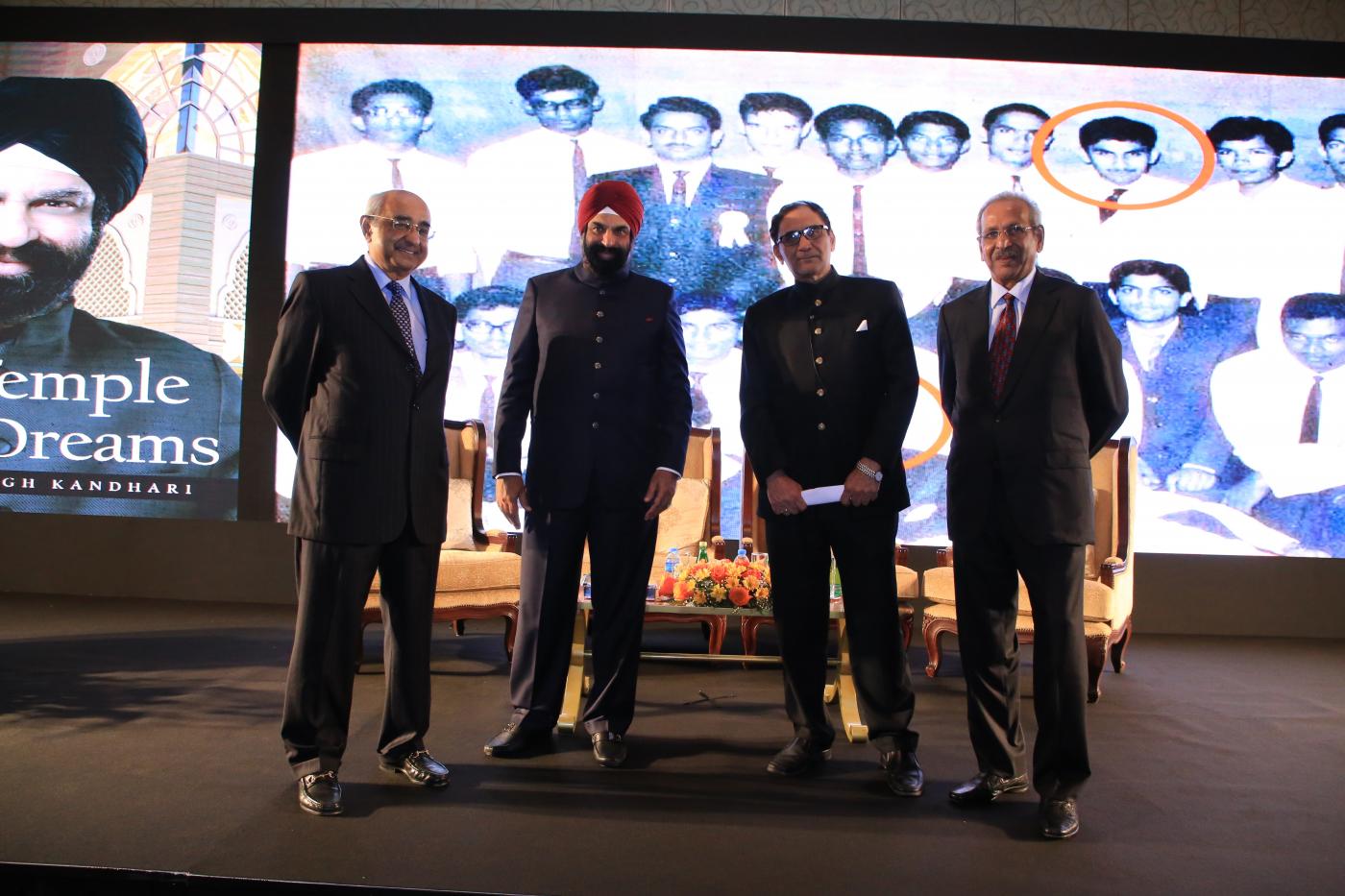
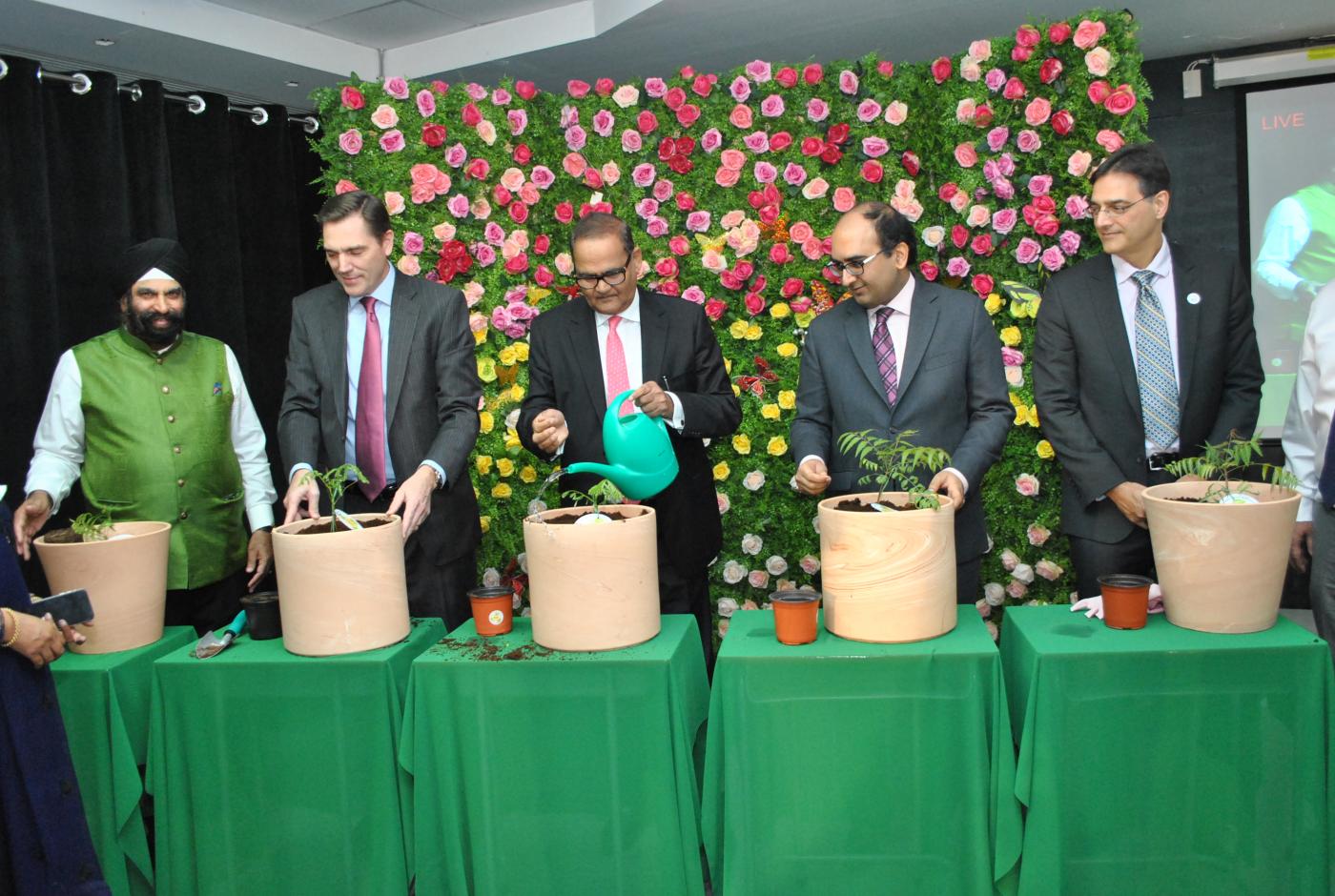
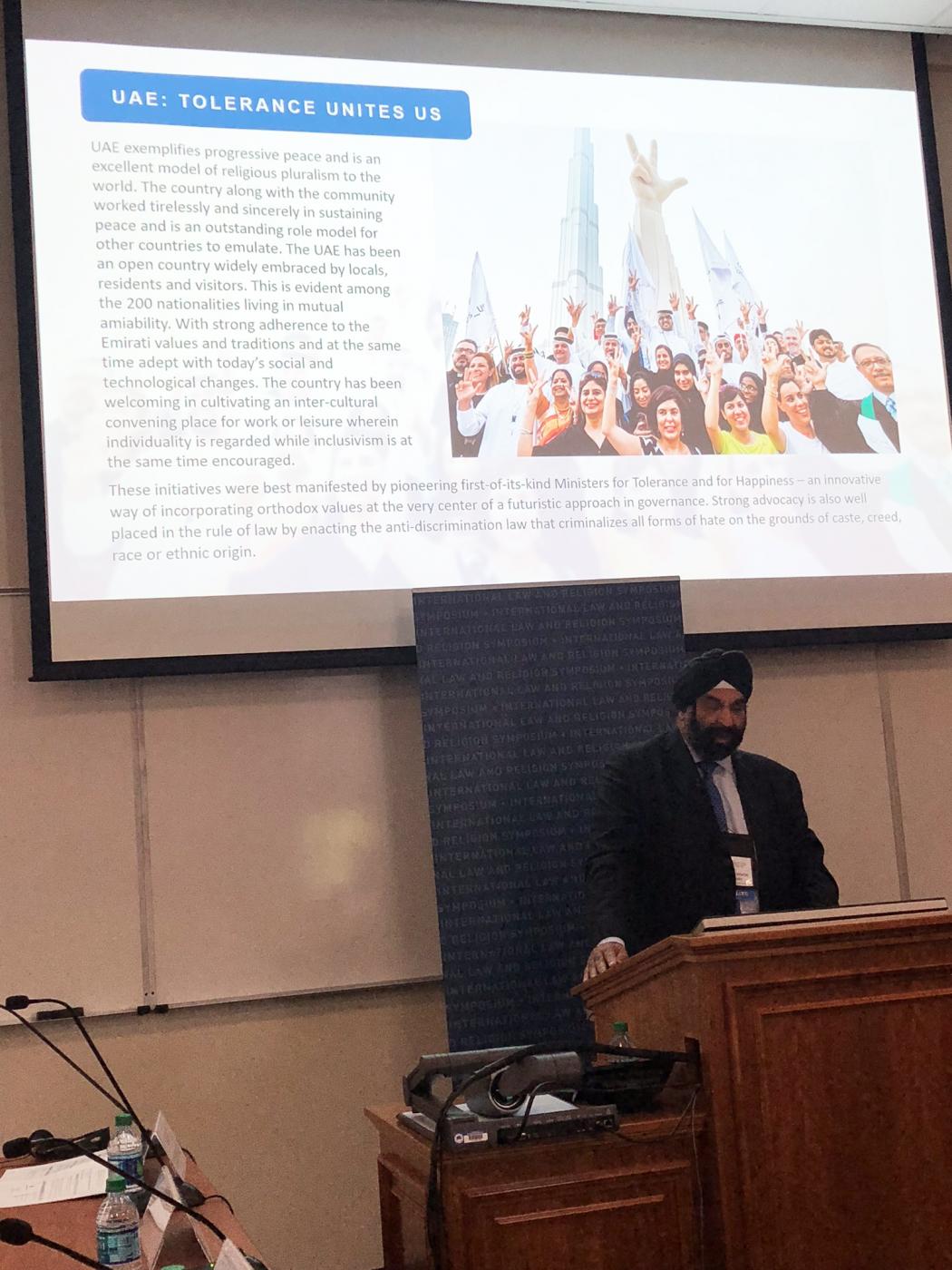
Surender-Singh-Kandhari-Chairman-GuruNanak-Darbar-Gurudwara-Dubai


